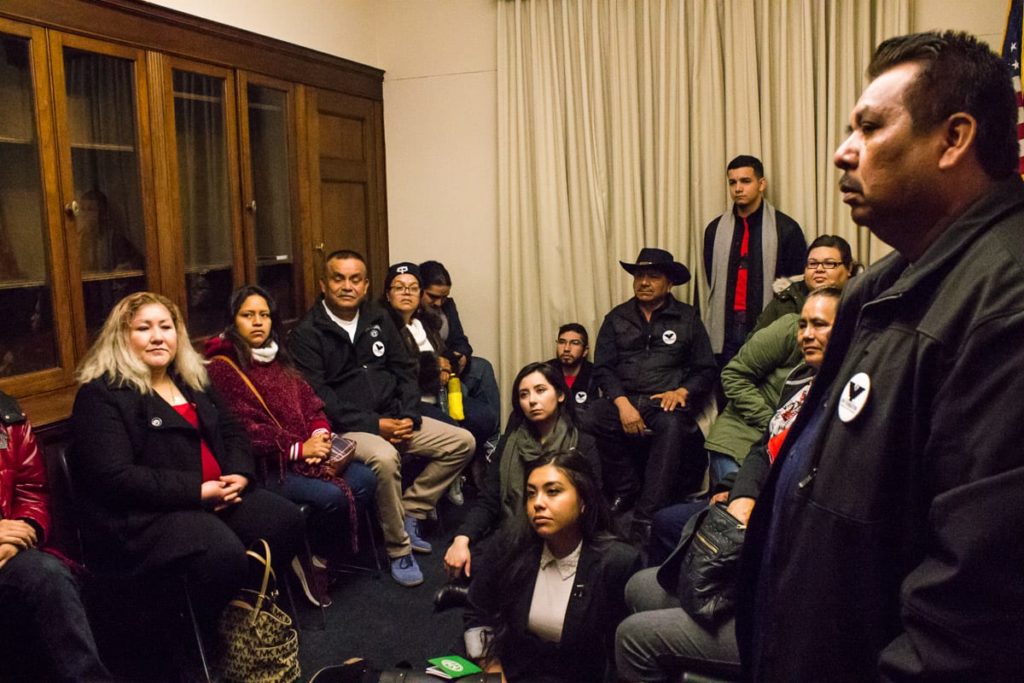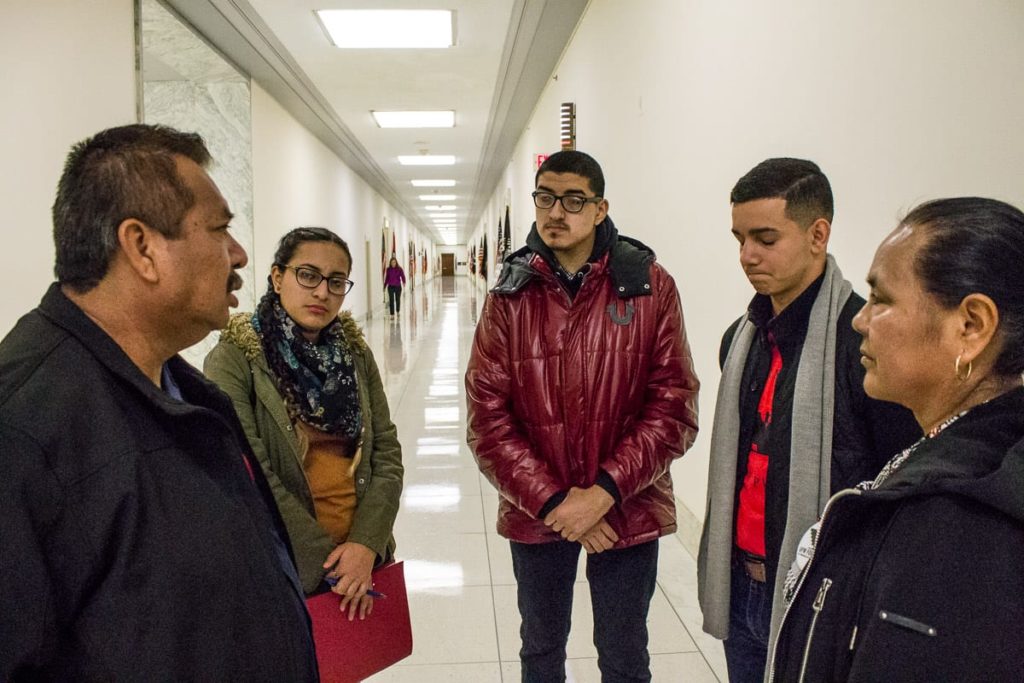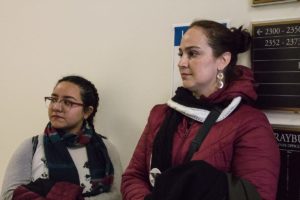WASHINGTON. D.C. — A bill that would give undocumented farmworkers a way to earn citizenship status passed in the House of Representatives on Wednesday, marking a major victory for agricultural workers.
The Farm Workforce Modernization Act, or H.R. 5038, was a major bipartisan agreement spearheaded by San Jose Congresswoman Zoe Lofgren. It passed, 260 to 165, with overwhelming Democratic support and 34 votes from Republicans. The legislation would allow people who can prove that they’ve worked in agriculture for 180 days in the past two years to receive Certified Agricultural Worker status.
And it would create a path for undocumented agricultural workers to obtain legal residency, commonly known as a green card.

A delegation of more than a dozen laborers and family members with the United Farm Workers union took the week off to come to Washington to meet with lawmakers who had not yet committed to supporting the bill and watch the House vote.
Among the UFW delegation was San Jose native Jose Martinez, who was born in the city but moved to Modesto when he was young. His grandfather, father and uncle were all UFW members. And 18-year-old Martinez joined his grandfather and uncle working in the fields for two summers picking apples, grapes and jalapeños.
But the biggest motivation for Martinez to advocate for this bill is the fact that his father was deported in 2007.

“He lost his fight. I’m continuing it for him and for my family and for other people who don’t have their legal documents,” Martinez said in between meetings with congressional staffers. “If we win this bill for them, it will be a pretty historic event for us.”

The workers walked the halls of Capitol Hill with pride, saying they wanted lawmakers to hear first hand about the struggles and indignities that they have to endure in order to produce food in this country.
Some offices were more welcoming than others. One worker from Salinas named Judith said that a staffer asked how it was possible for her to not speak English if she’d been in this country for 20 years. She was hurt by that remark, and wished she’d replied that when she was hired to pick lettuce, no one asked if she could speak English.
But while the United Farm Workers and 300 other agricultural groups support this bill, a key player was dissatisfied with the final outcome. Lofgren and the UFW say the American Farm Bureau was part of the months long negotiations and waited until the end to voice their opposition.
Allison Crittenden, director of congressional relations for the AFB, says that’s not true.
“We were a part of the conversation and we felt that our concerns were noted throughout the conversation,” Crittenden said.
The farm bureau has major issues with the bill, including the fact that it would only provide 20,000 year round H-2A visas for agricultural workers.
“Workforce needs far exceed 20,000 a year. So that year round visa cap is not acceptable,” Crittenden said.
Plus, half of those visas would be exclusively for dairy farmers. And with only 10,000 year round H-2A visas available for the rest of the agricultural employers in the U.S., the farm bureau believes this wouldn’t foster a viable guest worker program — which is why they oppose the mandatory implementation of E-verify.
The online federal program allows employers to check if an employee can legally work in the United States. If there aren’t enough visas available and employers are mandated to check the legal status of applicants, Crittenden says, “it could create a situation in which they are unable to secure the work force that they need.”
They’re also concerned about limiting wage increases and a new rule that would allow workers to sue employers in federal court. But while many admit there are problems with the bill, the members of the UFW say it’s a good first step.
“The bill isn’t perfect but it’s a compromise and it does make the situation much better,” Lofgren said.
It’s now up to the Senate to take up the bill, where critics like Congressman Doug Collins (R-GA) says he hopes lawmakers can make changes that will address the AFB’s concerns.
“Let’s just move it forward and then we can go from there,” Collins said.
It should be noted that the California Farm Bureau Federation broke off from its national counterpart to support the bill.
“Immigration issues are complex, but we thank the members of Congress who saw clearly the need to address current and future workforce needs for agricultural employers and employees,” said CFBF President Jamie Johansson. “We look forward now to working with the Senate to finalize this long-needed set of reforms.”
Contact Elizabeth Mendez at [email protected] or follow @izziemae on Twitter.



Leave a Reply
You must be logged in to post a comment.